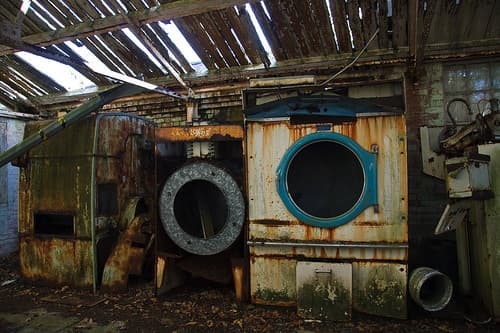The Spin Cycle: How Papua New Guinea’s media washes dirty stories

Dr Kristian Lasslett | International State Crime Initiative
With characteristic insight, last week Oro Governor Gary Juffa MP took aim at Papua New Guinea’s media.
Juffa asked:
‘Where are the in-depth stories into matters of concern to the public such as the Sustainable Agriculture Business Leases (SABLs), the Pacific Maritime Industrial Zone (PMIZ) scam, the sea bed mining saga, the numerous inquiries that went nowhere and the inflated contracts that go to dubious companies?’.
Amen!
Those of us investigating the crimes of the powerful in Papua New Guinea, know what a miserly place the media terrain can be, particularly the print press.
Entrusted to fearlessly keep the powerful to account, Papua New Guinea’s daily newspapers increasingly feel more like a Laundromat, where the rich and powerful can go to have their dirty ‘news’ – public relations pronouncements – put through the spin cycle, so it can be churned out to the people of Papua New Guinea cleaned of its partisan origins.
Coupled to this, there is a systematic failure to inquire into, and report on, the daily scandals profoundly affecting the region. Land frauds, forced evictions, theft of landowner resources, cronyism in government, corruption scandals, security force violence, are all common place, but rarely investigated or covered with any nuance.
Willed blindness to regional injustice is no small feat. Ignoring these issues requires significant effort, after all when it comes to corporate crime and corruption Papua New Guinea is one of the most transparent countries in the world.
National court judgements, commission of inquiries, public accounts committee reports, auditor general reports, and published research is literally teeming with information on corruption, illegal resource theft, police misconduct and human rights abuses. And names are named! Senior politicians, civil servants, business leaders and major corporate brands are all explicitly cited.
This information is literally being hurled at the media’s doors by citizens, landowners, NGOs, researchers, activists, and anti-corruption agencies.
Yet still it remains largely closed to the everyday injustices and abuses that many Papua New Guineas have to endure.
Of course, on occasions stories do appear in both the print and broadcast media that probe the misconduct of the powerful. But they are notable because of their exceptional quality. And they result from the concerted efforts of devoted journalists who are prepared to risk their career and personal safety to break a story of public importance.
However, we cant evaluate Papua New Guinea’s media on the basis of the exception. Rather in order to measure the rigor and vitality of the Papua New Guinea’s media we have to look at the overarching rule. When we do it becomes apparent courageous reporting that speaks truth to power is a slither in a much larger cake made up of banal news reports, corporate puff pieces and barely edited media releases from politicians and business elites.
Comparing PNG and Australia media: A case study on Paga Hill
Building a free and independent media in Papua New Guinea
Papua New Guinea is not short of individuals prepared to speak truth to power, including journalists. But the institutional structures are simply not in place to support professionals who want to engage in investigate reporting that scrutinise the dealings of the powerful.
New conversations need to be had on how such an institutional structure could be built that can bring to light the scandals Papua New Guineans want to know about, while also forcing the mainstream media to lift its game.
There are examples overseas which Papua New Guinea’s journalists could look to, where principled reporters fed up with being muzzled have sort funding from international donors devoted to press freedom and democracy, and set up a not-for profit investigative units, often with significant impact.
It is time to strike a blow against the information monopolies held by the mainstream media in Papua New Guinea, so that Papua New Guinea can enjoy a fourth estate devoted to truth and keeping the powerful to account.
